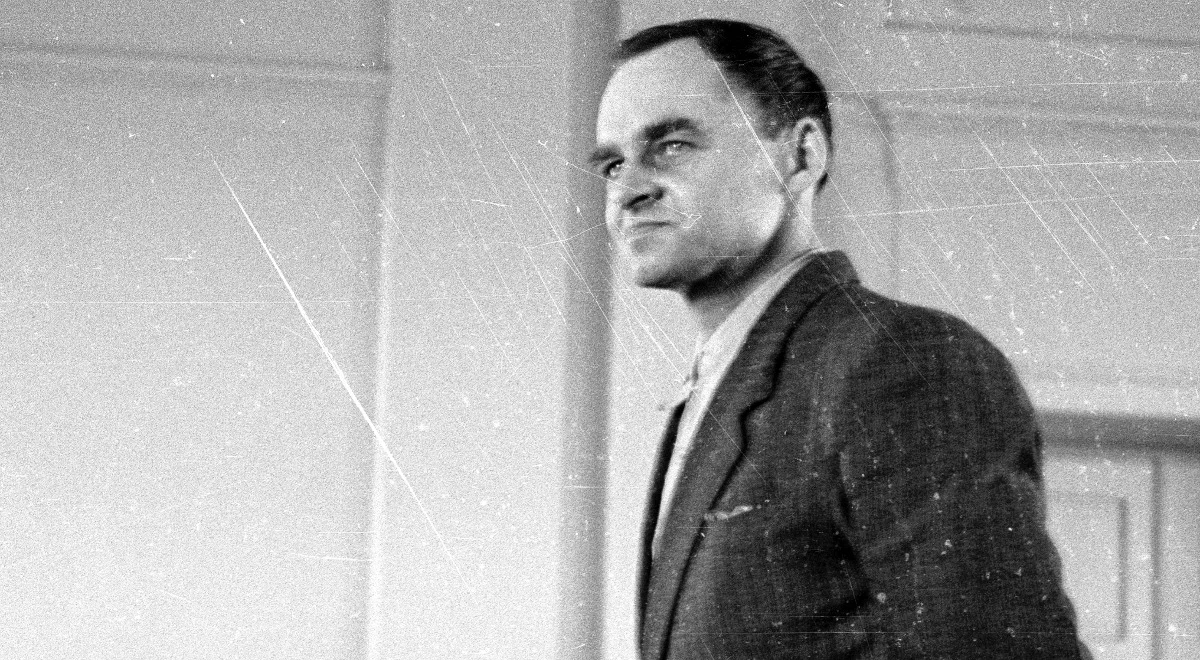Anglojęzyczne teksty na portalu sovereignty.pl mogły się ukazać dzięki wsparciu Fundacji Instytut Suwerenności i Dziedzictwa Europy przez Funduszu Sprawiedliwości w czasie, gdy zarządzał nim Marcin Romanowski, a ministrem sprawiedliwości był Zbigniew Ziobro. Nowa ekipa rządząca sprawiła, że wszelkie przedsięwzięcia o charakterze patriotycznym, historycznym, czy konserwatywnym, zostały zablokowane.
W związku z decyzją Muzeum II Wojny Światowej w Gdańsku o usunięciu z wystawy głównej rtm. Witolda Pileckiego, św. o. Maksymiliana Kolbe oraz bł. Rodziny Ulmów, wszystkich Czytelników, którzy chcą propagować informacje o polskiej historii za granicą zachęcamy do odwiedzenia portalu sovereignty.pl. W każdą środę będziemy zamieszczać wybrany tekst z portalu w wersji angielskiej. Dziś przypominamy artykuł o rtm. Witoldzie Pileckim prof. Marka Jana Chodakiewicza.
In the era of the universal inflation of the notion of heroism, here comes a story about an individual who has amply earned the right to be called a hero. Witold Pilecki was an extraordinary man by any measure.
Born in the northern reaches of the Russian Empire, Pilecki was a grandson of Polish Siberian exiles, who had fought for freedom against the Tsar. His parents instilled in him compassion and patriotism. Thus, the ethos of serving humanity and Poland expressed itself in the life-long obligation to the weak and the oppressed. He was further taught to love poetry and painting. Last but not least, Pilecki’s family imparted to him the importance of faith. He was a practicing Christian; and The Imitation of Christ by Thomas a Kempis served as his guiding light.
At thirteen, Pilecki joined an underground scouting cell, an organization banned by the Tsar. At eighteen, he volunteered for a mounted guerrilla unit in the Wilno area, where the local Poles were defending themselves from the forces of anarchy unleashed by the Revolution in Russia. A year later, Pilecki served in a regular cavalry regiment in the Polish-Bolshevik War (1920). He was twice decorated for bravery.
Following the war, Pilecki graduated from high school and, next, the school for cavalry cadet officers. In 1926, he retired to his landed estate at Skurczyce near Wilno. Pilecki became a gentleman farmer and an avid horse-breeder. He involved himself in social and charity work at the local level. He married Maria nee Ostrowska. The couple had two children: Andrzej and Zofia born in the early 1930s.
The idyllic country life was interrupted by the invasion of Poland by Hitler and Stalin in September 1939. Second Lieutenant (later Captain) Pilecki fought until his unit was nearly completely annihilated. The remnants cached their weapons and continued the struggle in the underground. Pilecki co-founded the underground Secret Polish Army (TAP), which, eventually, joined the umbrella resistance Home Army.
In September 1940 the intrepid freedom fighter volunteered for a reconnaissance mission to the mysterious new Nazi installation, the concentration camp at Auschwitz. To achieve his end, Pilecki simply allowed himself to be arrested by the Gestapo. He was beaten for two days and then duly sent to Auschwitz.
Pilecki no more, he became prisoner no. 4859. “During the first two days I felt dazzled as if I landed on a different planet. After the SS herded us with rifle butts behind the barbed wire onto a field swept with spotlights, we ran the gauntlet of incredibly joyous and screaming camp trustees. They put our ranks in order with their clubs… laughing and joking as they were dispatching the sick and the weak, as well as these who had a misfortune of admitting that they were judges or priests. I had an impression that we were locked up in a loony bin”.
Nonetheless, Pilecki immediately set out to establish an underground group (Union of Military Organizations, ZOW) at the camp and to assist fellow prisoners. In time, Pilecki’s Union embraced not only all Polish political options but also reached out to fellow prisoners of other nationalities. Their ultimate goal was an armed rising to free Auschwitz. Most of the participants of the ZOW would be killed by the Germans and the planned insurrection would not break out.
After three years of torture, forced labor, untold brutality, and rampant diseases, Pilecki escaped from Auschwitz on Easter Sunday in April 1943. He submitted a report about the camp and his underground superiors radioed it to the Western Allies. Aside from revealing the genocidal nature of Auschwitz, Pilecki called for the bombing of the camp. His plea was not heeded.
Meanwhile, the ex-prisoner, despite his utter exhaustion, was assigned to the Home Army intelligence. In addition, now Captain Pilecki became a part of a new underground structure, set up in the terrifying case of Stalin’s conquest of Poland.
In August and September 1944, the Captain fought against the Nazis in the Warsaw Rising. After the fall of Poland’s capital, he was imprisoned at a German POW camp. Following the liberation, Pilecki joined the Free Polish Forces in the West. His assignment was intelligence. The Captain volunteered to return to Poland in September 1945.
Once back in Warsaw, Pilecki established an autonomous underground cell. It collected intelligence on the Soviet occupation and the Communist terror apparatus. It also passed orders onto Polish guerrilla units to suspend the armed struggle and dissolve.
In May 1947, the Communist secret police arrested Pilecki. He was tortured horribly; his fingernails were torn off. But Pilecki refused to confess. He was subsequently tried on trumped up charges as a “foreign agent”. The hero of Auschwitz was judicially murdered by the Communists with a single shot to the head in Warsaw on May 25th, 1948.
After Communism collapsed, Pilecki was fully exonerated by a military tribunal in October 1991. His body has still not been found. His legend is alive and well.
This article was first published in “News of Polonia” (Pasadena, California) in 2006. We thank prof. Marek Jan Chodakiewicz for sharing this article.
Czytaj też:
"Odpowiedzialność pod znakiem zapytania". Przypominamy specjalne dodatki "Do Rzeczy"
